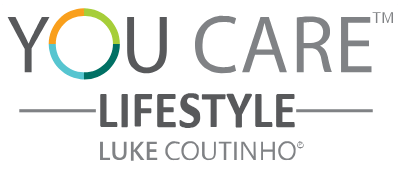When you become a new mother, your world changes, and, in a very literal way. From the smallest piece of clothing to the biggest decisions of your life, all of it starts revolving around your baby. But for them to be healthy and happy, it is equally important to not let yourself out of sight. Walking through the postpartum journey is one of the most transformative experiences. Every change you may face as a new mom may stress you at first, but with the right knowledge and resources, you can gain a better and more comprehensive understanding of what it might be.
Table of Contents
Postpartum Effect on Skin

Pic Credits: Freepik
Pregnancy glow is definitely something we have all heard of, but what about your skin post-pregnancy? If you dive deeper into the science behind it, you will realize the amount of hormonal changes your body goes through once your baby is born. The sudden drop of estrogen and progesterone right after childbirth often results in quite a few changes. Here is all that you need to know about the postpartum effect on skin:
- Did you notice dark patches appearing on your skin suddenly? Dark patches and hyperpigmentation on skin called melasma usually occurs post pregnancy. Also called the mask of pregnancy, it can persist over a long period of time and can increase the sensitivity of your skin.
- Breastfeeding can be a full-time job that ultimately tires you. After a while, you might notice sore and cracked nipples. This is absolutely normal and can be taken care of with soothing creams. Try this baby-safe, ghee and plant-based, and dermatologically tested nipple soothing balm.
- During pregnancy, not only your stomach but your entire body stretches out to make space for your little one. After childbirth, as your body comes back to itself, it can come along with stretch marks on your abdomen, breasts, arms, hips, and thighs. Try stretch marks removal cream once you are ready to invest time in self-care and see the magical results.
Postpartum Effect on Hair

Pic Credits: Freepik
Not just your skin, but even your hair goes through a majority of changes after childbirth. From hormones to sleep deprivation, schedule to dietary changes, all of these factors play a role in affecting your hair right after childbirth. Here are some changes your hair goes through that you must know:
- Postpartum hair loss is a big change to deal with. With the drop in estrogen levels, hair follicles may weaken as well, which leads to hair shedding. You may also experience changes in hair growth rate.
- Along with hair loss and shedding, hormonal changes, sleep deprivation, stress and dietary changes might also result in changing the texture of hair. Your hair may seem more brittle, weak, dry or extremely oily. Give time to your hair to adjust to changes and bounce back. Try the plant-origins hair care kit for hair thinning.
- Not only your hair but even your scalp may go through some alterations. Many new mothers seem to notice changes in oil production in the scalp. Some may also experience scalp sensitivity and irritation along the hair follicles.
Do Not Neglect Postpartum effect on Mental Health

Pics Credits: Freepik
Besides the physical changes your body goes through, the significance of mental health is humongous. From baby blues to mood dysregulation and emotional imbalance to an increase in stress, such factors can have a major effect on your mind and overall well-being. To consider and know these factors is very important for you to totally understand what you might be going through.
- Postpartum anxiety is one of the common occurrences after childbirth. Feeling anxious, scared, jittery or worried is part and parcel of baby blues. Trust us, this can be managed with the right routine. Include a calming fenugreek herbal tea to soothe your body and also get help in better lactation.
- Postpartum depression too is one of the most common symptoms among new mothers. Episodes of sadness, fatigue, low energy, emotional dysregulation, irritability, feelings of detachment, guilt, remorse, and much more are all symptoms of postpartum depression.
- In some cases, postpartum depression can aggravate and can result in postpartum psychosis. Although a rare condition, postpartum psychosis includes hallucinations, episodes of panic attacks, mood swings, and extreme paranoia.
How to Deal With It All?

Pics Credits: Freepik
Taking care of your mental health should always come first. To take good care of your baby, it is important for your mind to feel stable and settled in a right and happy place. Pregnancy and childbirth are big changes. They bring about transformation in your life, in all possible aspects. At such a time, you should be a safe and empathetic place for yourself first. Here are some things you can do to improve your mental health:
- Prioritize self-care: Motherhood instills you with selflessness and love, and what better use of it than to shower some of it on yourself too? Taking care of yourself, indulging in skincare and haircare, meditation, mindfulness activities, and journaling can be some of the great ways to take the best care of yourself.
- Stay connected: Childbirth and postpartum changes can bring about a lot of confusion and can make you feel out of place. Instead of sitting aloof and lonely, make use of this time to stay connected to your friends, family, and most importantly, other new moms who might share your experiences.
- Improve your diet: Hormonal changes can disrupt your bodily balance, and dietary changes contribute to it as well. At this time, you can prefer having foods especially rich in antioxidants. These foods naturally boost your energy and help in maintaining the hormonal balance in your body, keeping your spirits and mood uplifted.
- Be empathetic and patient: The most important thing you can do for yourself is being empathetic and understanding with yourself. Take your time to process and adapt to the new life, engage in maintaining a lifestyle you feel the most comfortable and happy with, and be patient with yourself, trusting that you will make it.
Being a new mom can be as beautiful and as sad as you want it to be. Focus on positivity around you and be grateful for what you have endured so far.
Disclaimer: Please keep your healthcare provider in the loop before introducing any new food item or beauty product into your lifestyle, especially if you have a medical health condition or are on medications. In case you are allergic to certain foods, please avoid them.



Comments